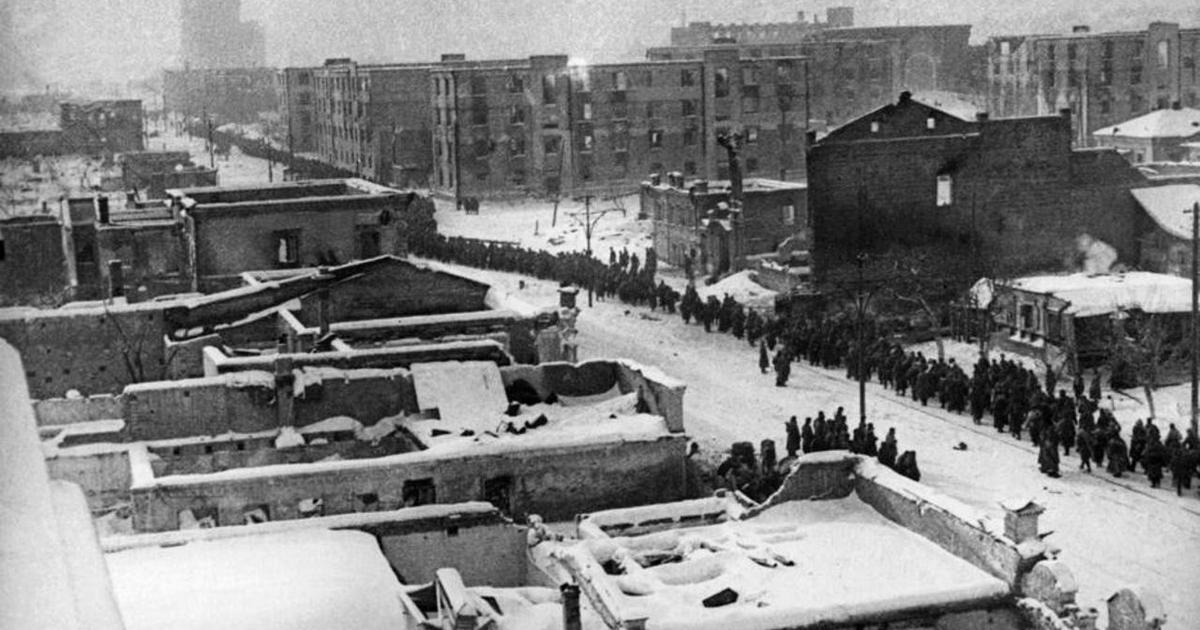“It was around 4 o'clock in the afternoon (…). On the radio we were told that the threat of an air attack was still relevant (…). And suddenly in the sky we heard the roar of several planes and the sound of bursts fired by the anti-aircraft defenses
.
This extract from the diary of Oleg Trubatschow, a schoolboy from the city of Stalingrad, is dated August 23, 1942. That day, Wehrmacht soldiers reached the northern suburbs of the city located on the banks of the Volga.
And the German planes begin to bombard the city.
A dreadful siege
This text written by a 12-year-old kid, like several other excerpts from letters from Russian and German soldiers, is read in voice-over in the rich, unpublished German documentary entitled
Stalingrad, the voices of memory
.
This film directed by Artem Demenok plunges, with striking period images, into the heart of the hell of a long-term battle that will end in a Soviet victory.
A decisive success snatched at the end of an epic resistance, after an appalling siege and more than six months of clashes.
Long before managing to defeat Hitler's troops, the Russians are faced with a particularly badly started battle.
Thus, at the beginning of the summer of 1942, the voice of the German news announcer launched, enthusiastic:
“The battle of Stalingrad!
In the loop of the Don, the columns of reinforcements stretch as far as the eye can see.
Our infantry travels up to 60 kilometers a day.
The German steamroller worries the Soviet side.
A certain Nikita Khrushchev, then a member of the Politburo and of the military council of the Stalingrad front, writes:
The situation at the gates of the city was deteriorating, the adversary had the advantage in terms of the forces engaged and sought at all costs to reach the Volga.
Once the Don was crossed, we did all we could to use the powerful barrier that the river constituted.
But the Germans were clearly superior in artillery
.
»
"Die rather than give up the slightest plot of land"
The fierce will of the Soviets to resist at all costs is nevertheless very present.
On August 8, the German radio operator Heinz Meier noted in his diary: “
We have intercepted a secret order from Stalin, he instructs Russian soldiers to die in battle rather than give up any piece of land.
It is also an admission of the considerable losses suffered by the Bolsheviks.
And, indeed, we find that their fighters would rather be shot down than surrender
.”
The Soviets' rage to fight was all the stronger because on July 28 Stalin gave the order to immediately execute defeatists and cowards.
On August 23, once the assault launched on Stalingrad by the Sixth Army of General Paulus, and the first bombardments started, the resistance intensified.
It is filmed to boost the morale of the whole nation.
Thus appears on the screen the secretary of the regional office of the party, Alexeï Tchouïanov.
He is on the phone with the general secretary of the party: “
Comrade Stalin, your order to fight ruthlessly against cowards will be carried out.
We will not surrender Stalingrad!
»
A promise which will be kept at the beginning of February 1943, at the end of a dantesque battle which will have cost the lives of 470,000 Soviet soldiers, 180,000 civilians, and 400,000 German combatants.
That is a total of more than 1 million deaths.









